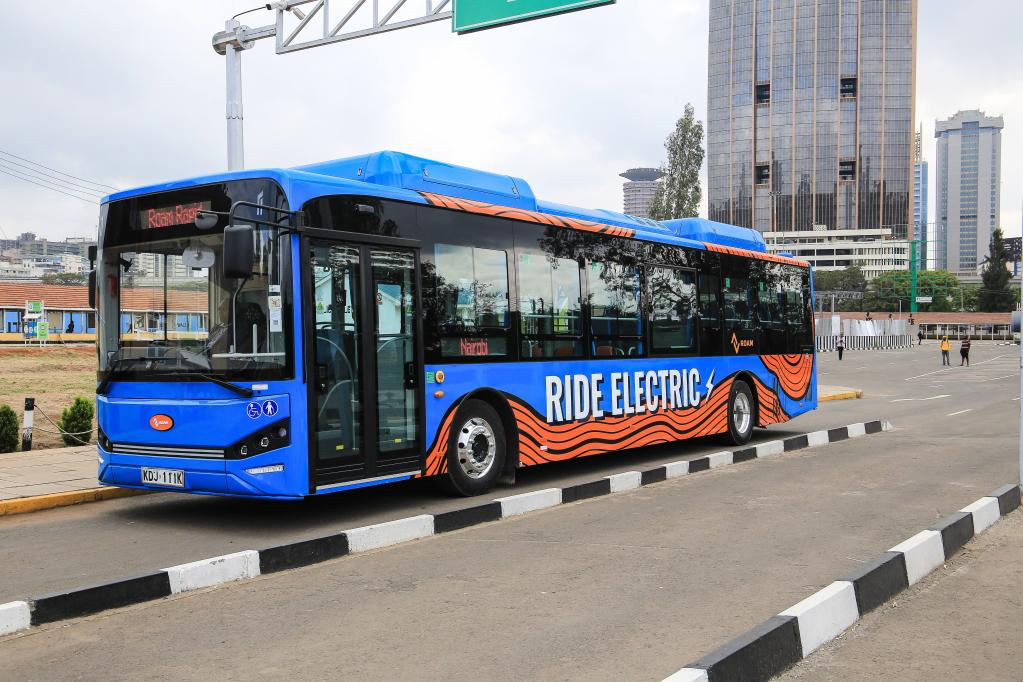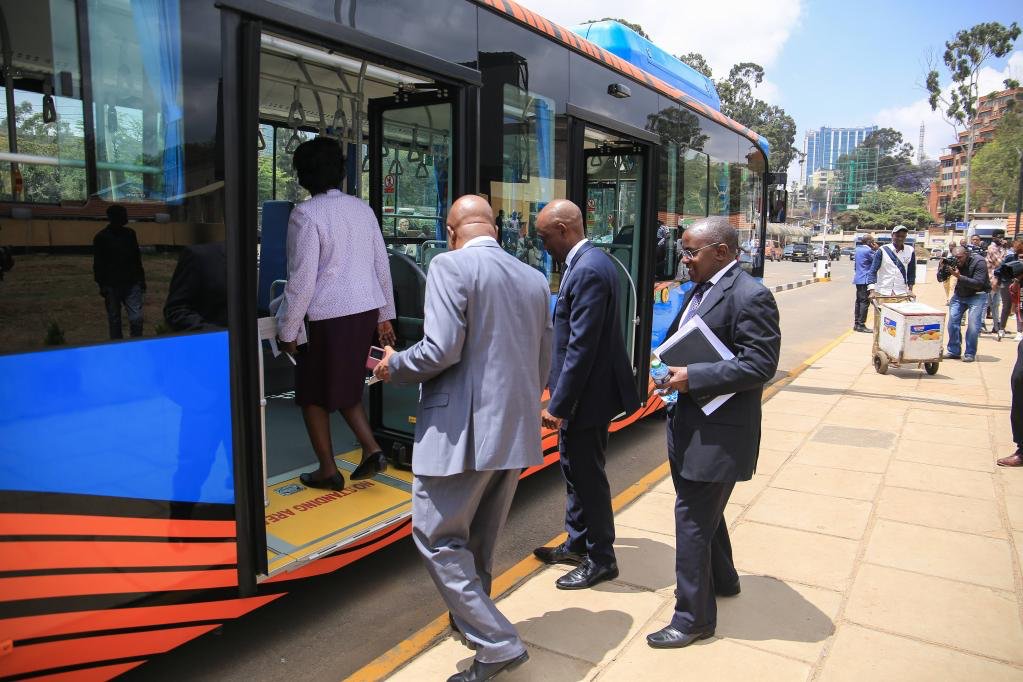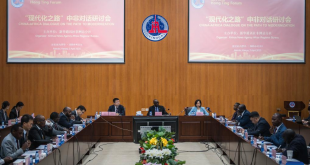Published: February 05,2023

An electric bus is seen in Nairobi, capital of Kenya, on Oct. 19, 2022. (Photo by Charles Onyango/Xinhua)
Kenyan public transport operators are embracing the use of electric buses as demand for eco-friendly transportation systems in the country expands.
NAIROBI, Feb. 4 (Xinhua) — Kenyan public transport operators are embracing the use of electric buses as demand for eco-friendly transportation systems in the country expands.
The owners of public transport vehicles, popularly known as Matatus in Kenya, are increasing their uptake of electric buses to ferry passengers to their various destinations.
Christopher Muia, chairman of the Matatu Owners Association (MOA) in Nairobi County, told Xinhua Tuesday that so far three Chinese-made electric vehicles are operating on Kenyan roads.
“Electric buses are a new product on the Kenyan market but have received a positive reception from commuters,” Muia said in Nairobi, the Kenyan capital.
He revealed that about 60 percent of the population in Nairobi are dependent on public transport for their daily commute from home to their respective workplaces.
“We transport about 2 million passengers in a day between Monday to Friday,” said Muia, adding that the use of electric buses has numerous advantages as compared to the fuel-based buses that traditionally ply Kenyan roads.
According to Muia, bus operators of conventional buses with a capacity of about 32 passengers incur an estimated 7,000 shillings (about 56 U.S. dollars) per day on fuel while operators of electric buses require 45 dollars to fully charge their vehicles every single day.
Muia said that bus operators are committed to increasing the number of green vehicles under their management to boost the sustainability of the sector. He revealed that the public transport in the country is also keen to play a positive role in reducing carbon emissions that arise from their fleet.
Muia urged the government to reduce the import duty on electric buses to make them more affordable to bus operators. He noted that lower taxes on eco-friendly vehicles is expected to accelerate the uptake of green transport in Kenya.
One of the companies driving the electric bus sector in Kenya is BasiGo, which has partnered with the Chinese vehicle manufacturer BYD to facilitate the smooth transition to green transport.

Guests enter an electric bus in Nairobi, capital of Kenya, on Oct. 19, 2022. (Photo by Charles Onyango/Xinhua)
Mutoro Sifuna, the manager for Marketing and Communication at BasiGo, told Xinhua that electric buses are a viable alternative to diesel vehicles as the industry is expected to realize cost savings.
“Bus operators who switch to electric buses reduce their operating expenses by between 20 and 30 percent,” Sifuna remarked.
She noted that when it comes to the environment, diesel buses emit about 60 tonnes of carbon in a year while electric buses release three tonnes of carbon into the atmosphere.
Sifuna revealed that the commuting public has been very happy to see eco-friendly buses on their routes.
“We have had passengers calling our drivers to find out when the electric buses are coming so that they can schedule their travel,” said Sifuna.
She noted that travelers also enjoy using electric buses because they are quiet as compared to diesel vehicles making the daily commute a delightful experience.
Sifuna disclosed that to increase the uptake of e-mobility in the public transport sector, they have introduced innovative financing models. “We have made it more affordable to acquire the electric buses through our pay-as-you-drive model which means we only charge public transport operators on a per-mileage basis.”
BasiGo recently received 15 buses from China which will be operational on Kenyan roads in March.
“Our plan in the long-term is that we have 1,000 buses on Kenyan roads by the end of 2025,” Sifuna said.
In order to catalyze the uptake of green vehicles, Sifuna appealed to the government to lower the electricity tariffs for the bus charging stations as a measure to reduce the operational costs of electric vehicles.
David Mwaura has been working as a bus driver for public transport vehicles for the last 13 years. The 39-year-old seasoned driver told Xinhua that he made the switch to electric vehicles last year when the green buses were introduced on Kenyan roads.
The father of three observed that there is a big difference between driving electric buses and diesel buses.
“The electric buses are more comfortable because there is less vibration on the driver’s seat and so I experience less fatigue from driving the electric buses,” said Mwaura.
Betty Kilonzo, who works as an airline flight attendant, is a regular user of the electric buses when she travels from home to her place of work.
The 25-year-old urbanite told Xinhua that her experience commuting with the green buses has been very enlightening.
“I was expecting to pay a higher transport fee because the ride is very comfortable and the environment is very serene but it is the same as fuel buses,” said Kilonzo.
Xinhua
 Africa -China Review Africa -China Cooperation and Transformation
Africa -China Review Africa -China Cooperation and Transformation
